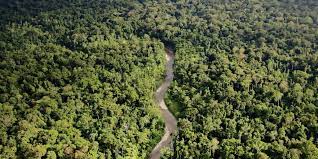In the papua region of Indonesia, this company has started clearing rainforest, on indigenous ancestral land. The project is already mired in many issues, from suspicion that the permits are false and the way that the offshore investor has been kept secret.
However, while it is often only legal to get a permit from the main government, in practice it is recognised that prior and informed consent should be got from the local population. This is often skipped, as central governments will often use these ways to clear land from indigenous people allowing them to have more control over the entire country.

Palm oil plantations should obviously have permission from the national government, they should also have prior and informed consent from the local population.
Damage to local environment should be kept to an absolute minimum, and the company should pay to clean up the environment when they are done. These plantations should also employ locals and not bring in people from outside.
However while plantations can make much money for the owner, they are often a poor investment for the the area bringing little work and eradicating forest the doctor that point has been used as a resource by the people.
I have sympathy for companies who wish to use our miles as it is a very difficult to make sure that your palm oil is not causing deforestation. My hope is the seaweed created palm oil, might take off in the near future undercut the prices and make these vast palm oil plantations unsustainable – perhaps these huge areas of Sumatra and Borneo could return to rainforest?
